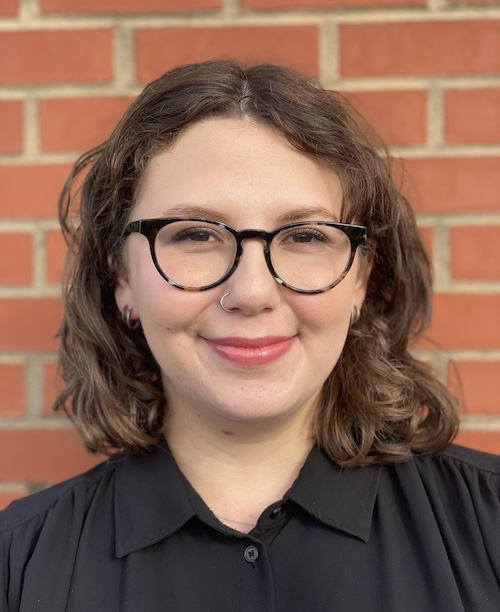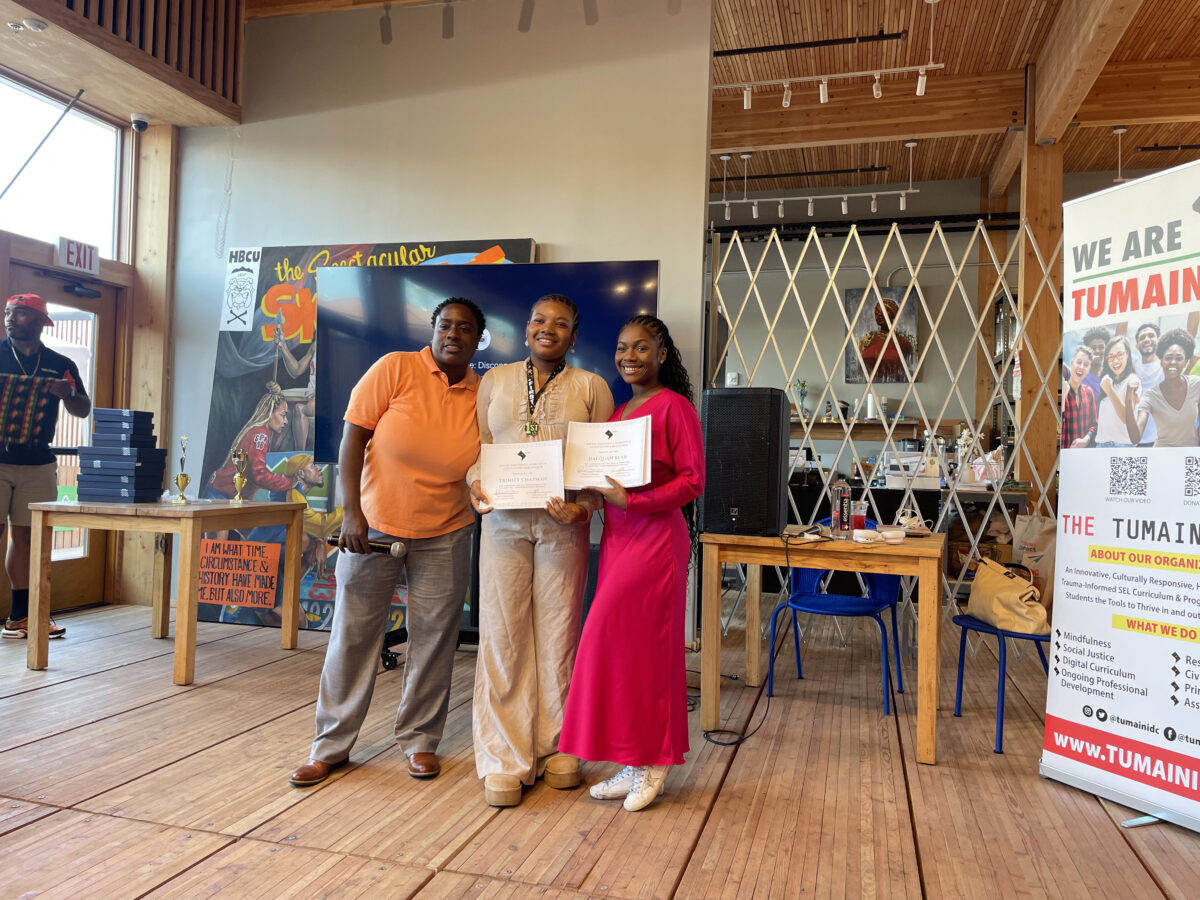Trinity Chapman has been competitively gaming for a few years now, and playing for fun for most of her life. As a Black woman in an overwhelmingly white space, oftentimes when she enters a competition, she’s met with bigotry.
The recent high school graduate and Howard University-bound DC resident is trying to change that reality for herself and others. She created Lynx, an inclusive video game solution that aims to better loop in women, gamers of color and LGBTQ+ players. Its platform offers sponsorships, Chapman explained, so gamers can get backing to take part in esports competitions. That means helping purchase expensive equipment, like computers and headsets, and covering entry fees.
In the US, 75% of adults who play video games are white, according to a 2024 report by the trade group the Entertainment Software Association. Through Lynx, Chapman hopes to make gaming more diverse and accessible.
“There needs to be inclusionary changes within the professional gaming industry,” Chapman told Technical.ly. “The end goal is to make this industry inclusive for everyone.”
Chapman’s idea won her first place at a pitch competition on Friday for DC teenagers. It marked the culmination of a business development program by the nonprofit Tumaini DC and the Marion Barry Summer Youth Employment Program.
Students spent six weeks developing business ideas that solve problems in their communities, per Portia Richardson, the founder and executive director of 11-year-old Tumaini DC. The nonprofit focuses on promoting students’ social and emotional wellness through a trauma-informed curriculum and programming like the entrepreneurship initiative. Students learn about self-awareness, relationship skills and healthy communication, also known as soft skills.
This entrepreneurship-focused program specifically started in 2021, according to Richardson. In her work, she realized that poverty and a lack of opportunities are major issues behind the trauma that many students face.
She wanted to directly address that issue and help students have more agency.
“Most of our young people are very entrepreneurial-minded. They’re very innovative,” she said. “It allows them to use their voice, to leverage their voice and solve problems. But it also gives them another pathway to create generational wealth and to break the cycle of generational poverty.”
Chapman, the competition’s winner, plans to continue working on this idea. She’s aiming to create a website, as well as network with landmark video game companies and organizations to get her idea out there.
Although she was nervous to join Tumaini DC’s entrepreneurship program at first, having never participated in something like this before, said she’s learned so much.
“That’s how I’ve come so far with my business: Because of the things that they [Tumaini DC] have put in place for me, and the tools that they’ve given me to succeed,” she said.
A way to empower kids
Eight students pitched at the competition on Friday. They presented ideas including plans to prevent youth addiction through board games and books, a media company to boost the stories of those experiencing homelessness and a streetwear brand offering made-to-order clothes.
Next, most of the students who pitched business ideas are heading to Miami, Richardson said. Tumaini DC has a partnership with the Grant Cardone Foundation, the educational nonprofit started by the mogul and YouTube star of the same name. Through that, the students will pitch their business ideas to top executives from Cardone’s network.
Over the last three years since the program’s start, different students have raised $75,000 in seed funding from the competition in DC and presenting in Miami, Richardson said.
In addition to the entrepreneurship initiative, Tumaini DC organizes vocational programs integrated with trauma-informed emotional wellness practices, including a cybersecurity and IT program.
The summer class of that project created a mobile app called Rebound, which they presented at the event on Friday. The app lets users easily edit music and make playlists. The group developed code using Python, with the hope to make it available for download in app stores this year, Richardson said.

The program makes an effort to include past participants — two alumni of the program returned to serve as judges at the competition. Ean Bowie took part in Tumaini DC programming five years ago as a freshman in high school; three years later, he was invited back to pitch his business idea at the competition.
Back then, he presented an idea for a service to help athletes develop an online presence and brand, he said. Now, he’s entering his second year at Ohio State University, where he’s studying strategic communications. While he hasn’t furthered the business idea he pitched, he said the process taught him a lot. Bowie’s goal is to work as a vice president in communications at a major company, he said.
He returned to judge the competition and offer advice to students because he wanted to give back the support he had, including the help he received from Tumaini’s founder Richardson.
“Ms. Portia’s great,” Bowie told Technical.ly. “It’d be crazy for me to not get back when she did a lot for me.”
Making a difference for local students — and herself
Tumaini DC was born out of frustration, Richardson said.
When she previously taught at an alternative high school in DC, one of her students was murdered two weeks before graduating. While getting lunch more than a decade ago with her middle-school classmate, a local elementary school teacher, they divulged their exasperation with the state of violence and the lack of intervention they both witnessed.
They felt a sense of urgency, too. From there, Richardson started to develop the curriculum and programming. After testing it in her own classroom, the curriculum quickly took off and expanded to what it is today, including with the entrepreneurial program and vocational opportunities. She’s disseminated the wellness-centered curriculum into schools across eight states, including Maryland and Virginia, with plans to implement in Ghana.
She knew from a young age that she wanted to build generational wealth for her family. Creating Tumaini DC changed her life, she said.
“Entrepreneurship has been a powerful tool for me,” Richardson said, “to create a legacy for myself that extends far beyond the community where I grew up.”
Before you go...
Please consider supporting Technical.ly to keep our independent journalism strong. Unlike most business-focused media outlets, we don’t have a paywall. Instead, we count on your personal and organizational support.
3 ways to support our work:- Contribute to the Journalism Fund. Charitable giving ensures our information remains free and accessible for residents to discover workforce programs and entrepreneurship pathways. This includes philanthropic grants and individual tax-deductible donations from readers like you.
- Use our Preferred Partners. Our directory of vetted providers offers high-quality recommendations for services our readers need, and each referral supports our journalism.
- Use our services. If you need entrepreneurs and tech leaders to buy your services, are seeking technologists to hire or want more professionals to know about your ecosystem, Technical.ly has the biggest and most engaged audience in the mid-Atlantic. We help companies tell their stories and answer big questions to meet and serve our community.
Join our growing Slack community
Join 5,000 tech professionals and entrepreneurs in our community Slack today!

The person charged in the UnitedHealthcare CEO shooting had a ton of tech connections

From rejection to innovation: How I built a tool to beat AI hiring algorithms at their own game

Where are the country’s most vibrant tech and startup communities?




